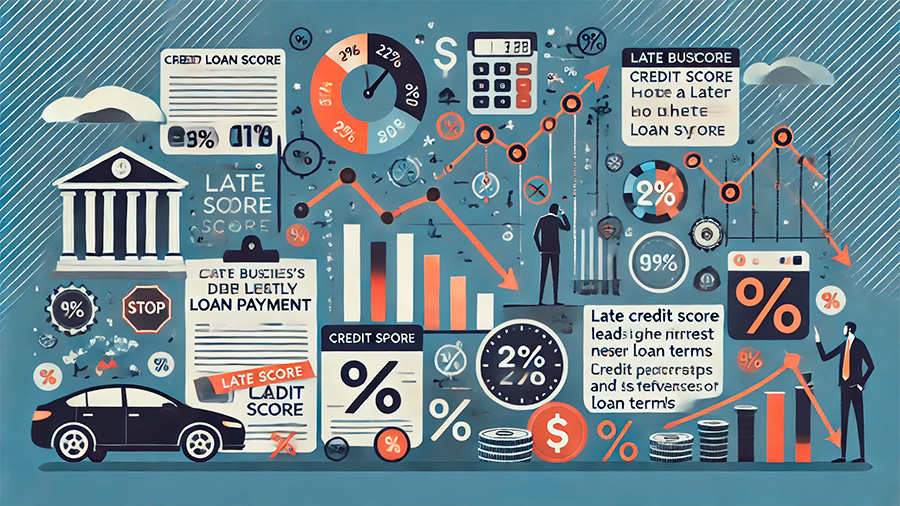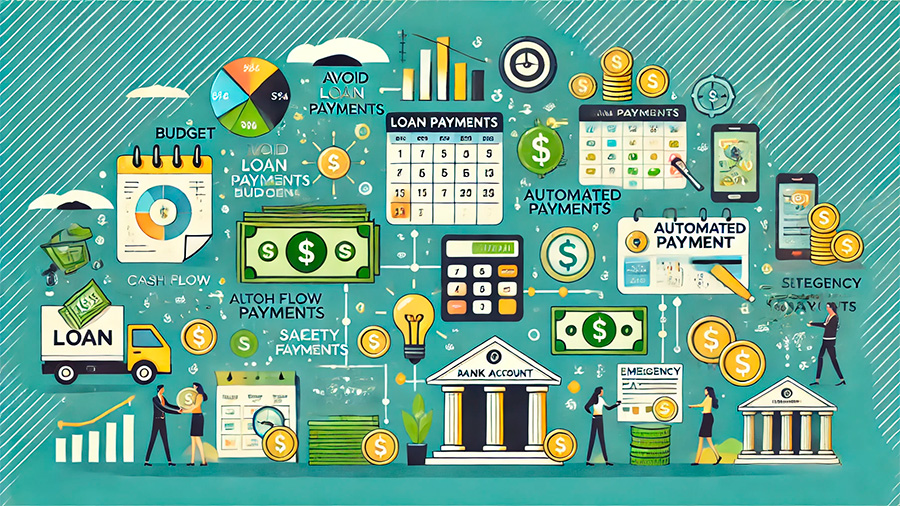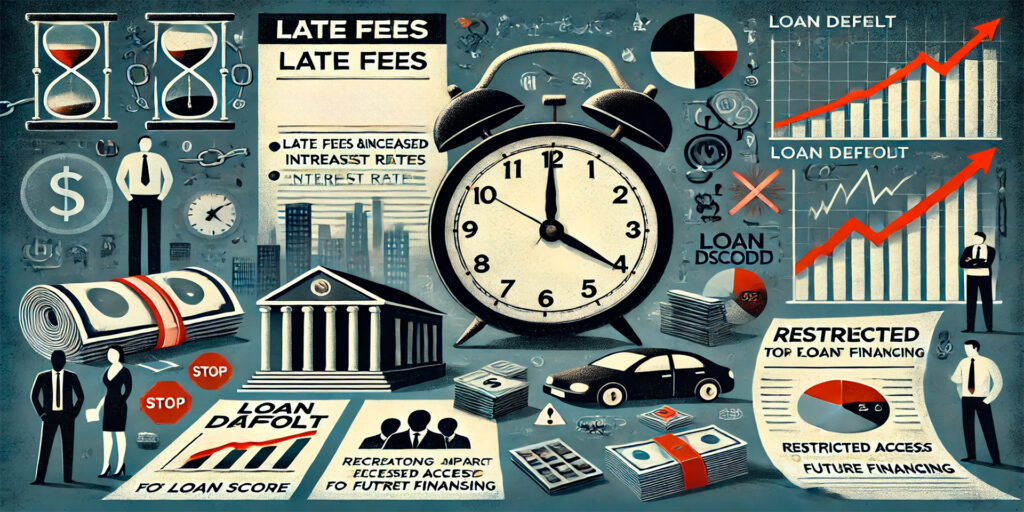Late loan payments can have serious and lasting consequences for your business. Beyond the immediate penalties, such as late fees and increased interest rates, late payments can significantly damage your credit score and hinder your ability to secure future financing. Businesses that consistently miss loan payments may find themselves facing more than just financial strain—they may also lose the trust of lenders, suppliers, and partners. Understanding the long-term impact of late payments is essential for maintaining your business’s financial health and credibility.
When a business is unable to meet its loan obligations on time, the ripple effects can be profound. Damaged credit scores, higher borrowing costs, and restricted access to additional credit can slow down growth and make it harder for the business to recover. Additionally, repeated late payments can lead to more severe consequences, such as loan default, legal action, or the inability to secure new loans in the future. To avoid these outcomes, businesses must be proactive in managing their debt obligations and addressing late payments before they escalate.
The Immediate Consequences of Late Payments
When a loan payment is late, the first consequence businesses face is typically a late fee. These fees can vary depending on the lender, but they are often a percentage of the missed payment, making them a costly burden. For businesses operating on tight margins, these additional costs can exacerbate cash flow issues, creating a cycle of financial strain.
In addition to late fees, some lenders may impose higher interest rates if payments are not made on time. This can increase the total cost of the loan and make future payments even more challenging to meet. Interest rate hikes can have long-term financial implications, especially for businesses with large or long-term loans, as they significantly increase the total amount that must be repaid over time.

The Impact of Late Payments on Credit Scores
Perhaps the most significant long-term consequence of late loan payments is the negative impact on your business’s credit score. Credit scores are a key factor that lenders use to assess your reliability as a borrower, and late payments can quickly damage this crucial financial indicator. Even a single late payment can cause your credit score to drop, making it more difficult and costly to secure loans in the future.
A lower credit score often translates into higher interest rates and less favorable loan terms. Lenders view businesses with lower credit scores as higher-risk borrowers, and as a result, they charge higher interest rates to compensate for the increased risk. For businesses that rely on credit to manage cash flow, this can lead to higher borrowing costs, further compounding financial difficulties.
Additionally, late payments that are reported to credit bureaus can stay on your credit report for years, impacting your business’s financial reputation long after the payment was made. This can make it difficult to secure new financing, enter into partnerships, or negotiate better terms with suppliers.
Long-Term Effects on Business Operations
Late loan payments can also have a broader impact on your business operations. When a business consistently struggles to meet its loan obligations, it may experience restricted access to credit, which can limit its ability to grow or invest in new opportunities. This lack of access to funding can hinder expansion plans, prevent businesses from purchasing new equipment or inventory, and make it difficult to hire additional staff.
Additionally, businesses that develop a reputation for late payments may find it harder to build trust with lenders, investors, and partners. A history of missed payments signals financial instability, which can make lenders less willing to extend credit in the future. Similarly, suppliers may impose stricter payment terms or refuse to offer credit lines, further straining the business’s financial flexibility.
The long-term operational impact of late loan payments can also extend to your business’s ability to innovate and adapt to market changes. Without access to affordable credit, businesses may struggle to keep up with competitors, invest in new technologies, or respond to changing customer demands. This can lead to a decline in market share and profitability over time.

How to Avoid Late Loan Payments
Avoiding late loan payments requires careful financial planning and proactive debt management. The first step is to create a detailed budget that accounts for all loan payments and other financial obligations. By monitoring cash flow closely, businesses can ensure that they have enough funds to cover their loan payments each month.
Setting up automated payments is another effective way to prevent late payments. Many lenders offer the option to automatically deduct loan payments from your business account on the due date. This eliminates the risk of forgetting a payment and helps ensure that payments are made on time, even during busy periods.
Maintaining a financial cushion is also crucial for avoiding late payments. Unexpected expenses or revenue shortfalls can disrupt cash flow, making it difficult to meet loan obligations. By setting aside funds for emergencies, businesses can better manage financial disruptions and ensure that loan payments are made on time.
Steps to Recover from Late Payments
If your business has already missed a loan payment, taking immediate action is key to minimizing the long-term impact. The first step is to contact your lender as soon as possible to explain the situation and discuss potential solutions. Many lenders are willing to work with borrowers who communicate openly and are proactive about addressing their financial challenges.
In some cases, lenders may offer a grace period or allow you to restructure the loan to make payments more manageable. This could involve extending the loan term, reducing the monthly payment amount, or temporarily pausing payments until your financial situation improves.
Additionally, businesses can work to repair their credit score by consistently making future loan payments on time. While the impact of a late payment can last for years, demonstrating a pattern of responsible borrowing can help rebuild your credit and improve your financial standing over time.
Conclusion
Late loan payments can have serious long-term consequences for your business, from damaging your credit score to increasing borrowing costs and limiting growth opportunities. However, with careful financial planning, proactive debt management, and a commitment to timely payments, businesses can avoid these pitfalls and maintain financial stability. For those who have already missed payments, taking immediate steps to recover and rebuild your credit can help mitigate the damage and restore your business’s financial health.



